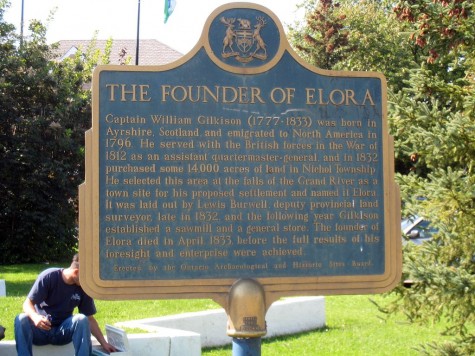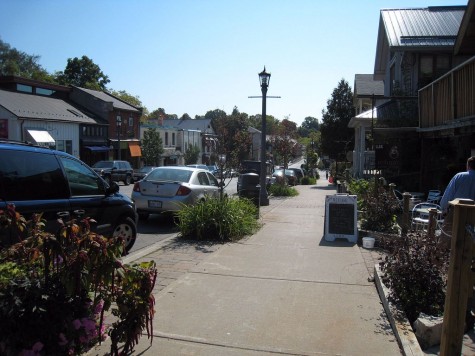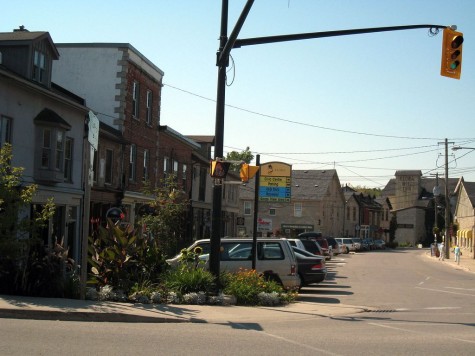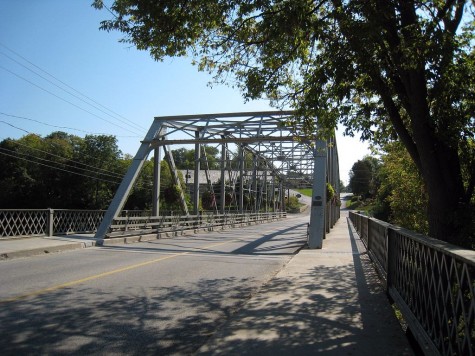Since the university tour only took to midafternoon, I suggested that we do some sightseeing. The Grand River by the Elora Mill Inn is scenic. We drove south over the bridge from the centre of the village to oversee the mill.
We walked a little farther west on the south bank for a better look of the dam.
Looking east, there’s some traditional-looking buildings on the north side, and the Metcalfe Streeet bridge.
Viewing the gorge itself requires driving back north over the bridge, and west to Victoria Park. There’s a long set of stairs down to the level of the water. The stairs curve, so only part of the route is visible from the top. Continue reading “2009/05/04 Waterloo, the Grand River and Elora Gorge“










